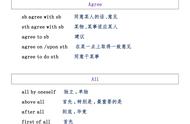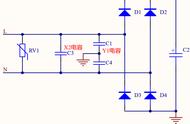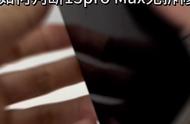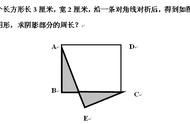1. always/ often/ frequently/ often/
usually/ sometimes/ never
Ⅰ. 这几个词都是表频度的副词,它们之间的区别可用百分比来区分:
(0%)→(20%)→ 70%)→(75%)→(100%)
从不 —→ 有时 —→ 时常 —→ 通常 —→ 总是
即:never(0%)→sometimes(20%)→often/frequently(70%)→usually(75%)→always(100%)
Ⅱ always “永远、总是”。与进行时连用时,表“再三地、老是”等意思。有时还表“生气或不耐烦”等盛情色彩。如:
① The sun always rises in the east.太阳总是从东方升起。
② I always get up at seven o’clock. 我总是在七点钟起身。
③ The boy is always asking whys.这男孩老是问这问那没个完。
Ⅲ often “时常、常常”强调经常性。如:
① He often comes here to see me. 他时常到这儿来看我。
② We have often been there.
Ⅲ frequently “时常、屡次”常与often 通用。但它强调次数频繁。如:
① Business frequently brings him to Shanghai.他时常因事到上海去。
② He frequently comes here to see her.他时常到这儿来看她。
Ⅳ usually “经常”其动作频率仅次于always.常常与一般过时,一般现在时连用。
① I usually get up at six in the morning.
Ⅴ never “从不”是否定副词。常常与完成时连用。
① I have never been to the Great Wall.
② She said she had never gone there.
2. edge / side
Ⅰ.edge侧重于指很窄的 “边缘”, 如刀刃或沿边的一部分.如:
Put some salt on the edge of your plate. 在你的盘子边上放些盐.
Ⅱ.side “边, 旁边” 有时与edge同义,有时指 “(东西的)侧面”, “(一个)方面”, “(身体的)侧边”,如:
3. among/ between/ in the middle of
Ⅰ. among “在……之中/中间” 指三者或三者以上。通常表某个范围。如:
① Someone is wrong among us. 我们中间有人错了。
② There is a small village among the mountains. 大山之间有座小村庄。
Ⅱ. between “在…之间”指在二者之间,有时与and 连用。如:
① There is a river between us. 在我们两人之间有一条河。
② I’m standing between a house and a big tree. 我站在一座房子和一棵大树中间。
Ⅲ. in the middle of “在……中间”指在某事物中间,强调事物的两端的中间。如:
There is a bus stop in the middle of the road. 在这条公路中间有个车站。
4. animal/ beast
Ⅰ. animal “动物” 是区别于植物而言,是动物的总称,通常指兽、鸟、虫、鱼等。如:
① It’s an animal of monkey kind. 这是一种属于猴类的动物。
② The animal is hungry. 这个动物饿了。
Ⅱ. beast “四足动物”通常指不包括爬行动物的较大的四足动物。如:
① The camel is a beast of burden. 骆驼是负重的动物。
② The tiger is a beast of prey. 老虎是猛兽。
5. another/ other/ more
Ⅰ. 名词前表示具有增加意义的“还、再”,一般用 more 和 another. more放在数词之后,而 another 放在数词之前;有时也可以用 other, 但other具有“不同”之意。保留它本意“别的”。如:
① one more thing, one other thing, another thing都表示“还有一件事”之意,如:
② I want three more / other books. = I want another three books.我还要三本书。
③ I stayed there three more days. = I stayed there another three days. 我在那儿又呆了三天。(这里不用other, 因day与day没有不同之意。
④ We need three more / another three hands to do the job.我们还需要三个人做这项工作。(这里不用other , 因不强调人与人的不同。)
⑤ He works on the Great Green Wall with many other people. 他与别的许多人一块在绿色长城上工作。(other 没有增加之意,表除自己以外的别的人。)
6. another/ the other/ other/ others/ the others
Ⅰ. another 指不定数目中的“另一个、又一个” (三个以上)用来代替或修饰可数名词。如:
I don’t think the coat is good enough. Can you show me another?
Ⅱ. other 泛指“另外的”修饰复数名词。如:
We study Chinese, maths, English and other subjects.
Ⅲ. others 泛指“另外的人或物”, 但不指其余的人或物的全部。如:
Some like swimming, others like boating.
Ⅳ. the other 指两个中的“另一个”如:
He has two sons, one is in Shanghai, the other is in Beijing.
Ⅴ. the others 特指某一范围内的“其余全部的人或物”如:
There are thirty books on the bookshelf. Five are mine, the others are my father’s.
7. answer/ reply
Ⅰ. answer “回答、答复”。是最普通的用语,包括用口头、书面或行动回答。它可以用作及物动词或不及物动词。如:
① He answered my question.
② It is a difficult question to answer. 这是一个难以回答的问题。
③ Please answer my letter as soon as possible.
④ They left a boy to answer the bell. 他们留下一个孩子应门。
Ⅱ.reply “回答、答复”。 但比answer 正式些。它指用口头或书面回答。严格地讲,是指有针对性地详细地回答。 它也指用行动回答。 Reply 常用作不及物动词,回答某人或某事。后接to; 当它与直接引语或从句连用时,才用作及物动词。如:
① I didn’t reply to him.我没有答复他。
② He replied that he might go. 他回答说他可能去。
8. any/ either
二者所指的相关名词或代词的数量不同。
Ⅰ. any 指二个以上的“任意一个”人/物。如:
When can you go with me to the city? Any day of this week will do. 什么时候你能陪我去城里?这个星期的哪天都行。
Ⅱ. either 一般指两个中的“任意一个”且其后不能接不可数名词。如:
Can you come on Friday or Saturday? Either will do .你能在星期五还是星期六来吗?哪天都行。
9. any/ some
Ⅰ.any “一些、一点、(有时不宜译出)” 一般用于疑问句、否定句。 如:
① Have you any new books? 你有(什么)新书吗?No, I have not any new books. 我没什么新书。
② Have you any money with you? 你身边带了一些钱吗?
Ⅱ.some “一些、一点” 一般用于肯定句。如:
① I have some new books. 我有一些新书。
[注]:① any用于肯定句中时,表“任何……、随便……”等意思。 如You may come at any time. 你随便什么时候来都可以。
②some 用于疑问句时,表“期望得到肯定的回答”或“邀请”或“请求”等意思。通常用在带情态动词的问句是。如:
1. Aren’t there some envelops in that drawer?那个抽屉不是有些信封吗?
2. Would you have some tea?您喝点茶吗?
10. anyone/ any one
Ⅰ. anyone “任何人”其后不跟of 短语。如:
Is there anyone at home.?
Ⅱ. any one “任何人/物”其后可跟 of 短语。如:
I’ll send you any one of these pens.
[注]:类似的用法还有:everyone & every one.
11. arise/ rise
Ⅰ. rise “升起、起来”它表“起床”的意义时比get up 正式 ,但不如get up 常用。如:
① The sun rises in the east. 太阳从东方升起。
② The Chinese people have risen to their feet. 中国人民站起来了。
③ He rises very early. 他起床很早。
Ⅱ. arise “出现、发生”。它虽然可表“升起、起来、起床等意思,但现在一般不用于此义,特别是在口语中。如:
① A new problem has arisen. 出现了一个新的问题。
② How did the quarrel arise? 争吵是怎样发生的?
12. arms/ weapon
Ⅰ. arms (pl) “武器”着重指用于战争的具体的武器,如枪、炮等。 如:
① The black people there have taken up arms to defend themselves. 那里的黑人已拿起武器自卫。
② The soldiers had plenty of arms and ammunition!士兵们有充足的武器和弹药。
③ Lay down your arms! 放下(你们的)武器!
Ⅰ. weapon “武器”单、复数形式都用。它意义比arms 广泛,除指用于战争的各种武器之外,还指虽然不是为战争而制造,但可以用作进攻或防守的器具。如:槌、石子等。此外,weapon 还可以用于借喻。如:
① The atom bomb is a weapon of mass slaughter. 原子弹是一种大规模屠*的武器。
② Look to your weapons. 当心你的武器。
③ A foreign language is a weapon in the struggle of life. 外国语是人生斗争的一种武器。
13. around/ round
Ⅰ. around 与 round 都可以用着前置词和副词。
Ⅱ. around “在……周围”“在周围”“循环地”。表静止的位置。如:
① They sat around the table. 他们围绕桌子坐着。
② I found nobody around.我发现周围没有一个人。
Ⅲ. round “环绕……周围、循环地”表一种活动的状况。如:
① The earth moves round the sun.地球绕着太阳转。
② A wheel goes round. 轮子旋转着。
[注]:这两个词现在可以通用,只是around 多用于美国,round多用于英国。
14. arrive/ reach/ get to
Ⅰ. arrive, reach, get to 均有“到达”之意,意义基本相同,但arrive(in)/(at) 与reach, 是正式用语,get to 是通俗用词,常用于口语。
Ⅱ. arrive 是不及物动词,表到达什么地点时,后面应接前置词in或at, 一般说,到达一个大地方常用in, 到达较小的地方常用at, 但这不绝对的。(与地点副词连用时当然不用任何前置词)如:
① He arrived in Beijing yesterday.
② When he arrived at the stop, the bus had left.
Ⅲ. reach 是及物动词,后面直接跟表地点的名词。如:
When does the train reach London?
Ⅳ. get to 只是较口语化。接地点副词时不用to. 如:
① He got to the shop at 5:00 o’clock this afternoon.
② When I got there, the film had been on for 5 minutes.
15. article/ essay/ composition
Ⅰ. article “文章、论文”通常指记叙文或论文。如:
① The article explains how the machine works. 这篇文章说明了这部机器怎样开动的道理。
② There is an article on education in the paper. 报纸上有一篇论教育的文章。
Ⅱ. essay “文章、论文”通常指文学上散文、随笔、杂文等;也指学术性论文。如:
① We shall read Lu Xun’s essays . 我们将读鲁迅的杂文。
② Can you write an essay in English? 你能用英文写一篇论文吗?
Ⅲ. composition “写作、作文”。 尤指学习语文者为练习写作而做的作文。如:
① He is learning composition. 他在学习写作。
The students were required to write a composition in English. 要学生写一篇英语作文。
























